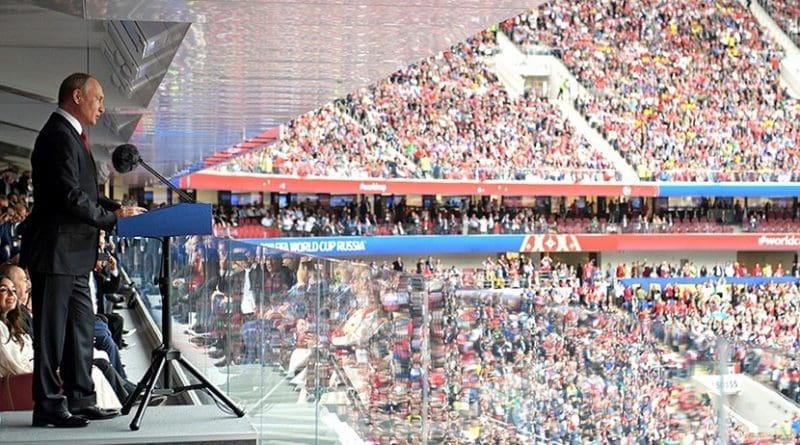Russian Law Enforcement Bodies Ordered Not To Give Out ‘Bad News’ During World Cup – OpEd
By Paul Goble
In the lead up to the presidential elections in March, the Kremlin put out the word that the media should highlight good news and ignore bad, a request that backfired on its authors by sparking rumors about events people had heard about, reducing trust in the media, and making bad events after the vote appear even worse.
But despite that track record, the Putin regime is repeating this approach at least in part, according to media reports. They say that law enforcement agencies have been told that they should not put out “negative” stories during the period of the World Cup and report that some stories are already disappearing from government sites (znak.com/2018-06-13/pravoohranitelnym_organam_zapretili_publikovat_plohie_novosti_iz_za_chm_2018).
The Znak news agency for one reports that “’bad’ news ended already on June 6,” with the usual reports about crime, arrests, and police raids replaced by big pictorial spreads about soft news like the opening of an exhibit on “100 Years in Defense of the Legal Order’” in Sakha or the dedication of a statue to a local policeman in Tomsk Oblast.
A similar pattern, the agency said, was in evidence on the sites of the State Automobile Inspectorate, the Magistracy, and regional interior ministry offices where upbeat stories about officials and police displaced negative ones about crime.
The Sakhalin news agency reports that police and prosecutors in the Urals and on Sakhalin confirm that they have been given direct orders from above “not to share negative cases with the press until the end of the month and that they are following orders and not reporting things they typically have(sakhalin.info/news/153552).
The Znak news agency says that it is “still unknown” whether this prohibition on negative stories extends to other siloviki groups. It has asked the interior ministry for an answer but not yet received any response.

